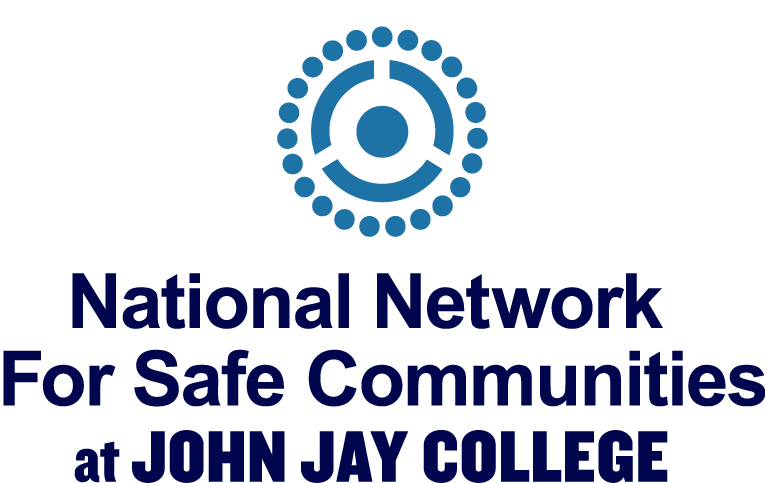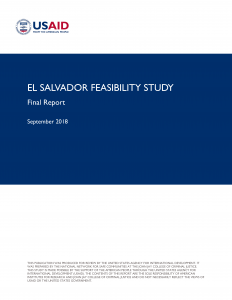
El Salvador Feasibility Study
In “What Works in Reducing Community Violence,” a 2016 systematic review commissioned by the United States Agency for International Development (USAID), Thomas Abt and Christopher
NNSC significantly broadened the scope of our network in 2017 with the launch of an international portfolio. International Interventions collaborates with a diverse range of partners outside the U.S. on effective strategies to increase community safety and reduce violence. NNSC’s international portfolio requires significant country-based adaptation, taking into account variations in social norms, histories of violence, institutional capacity and legitimacy, and more. By building coalitions of key stakeholders in communities, sharing knowledge among cities in the NNSC network, and consulting with subject matter experts, NNSC’s International Interventions portfolio is playing a meaningful role in addressing global violence.
Guided by our six key principles, we take steps to learn from our partners in an effort to fully understand the challenges they face. These steps include action research and convening local thought leaders who will work with us to adapt the framework to their context. Building coalitions of key stakeholders in the community, knowledge sharing with other cities in our network, and consulting with subject matter experts are different ways we support our partners. The goal is to achieve sustainable impact through leveraging and reallocating existing resources and social capital to implement the strategy, rather than relying on significant additional funding.
NNSC’s efforts beyond the United States add valuable insights to the existing knowledge base on focused deterrence. While the current knowledge base predominantly focuses on the U.S., NNSC’s global experiences contribute to a broader understanding of effective strategies in combating violence.
Through ongoing collaborations and the exchange of best practices, NNSC continues to drive positive change in communities worldwide. Our commitment to adapting and refining evidence-based approaches ensures that our efforts remain relevant, relatable, and effective in diverse international contexts.
Current Projects
Copenhagen Denmark
Rotterdam, Netherlands
Gothenburg, Sweden
Huddinge, Sweden
Jarfalla & Upplands-Bro, Sweden
Malmö, Sweden
Orebro, Sweden
Uppsala, Sweden
Past Projects
Honduras
El Salvador
London, UK
Bermuda
Australia
Ceará State, Brazil
Chihuahua State, Mexico
Nuevo León State, Mexico
Successful violence reduction must be a collective effort across institutions and communities. Effective violence reduction hinges on the legitimacy of state institutions in the eyes of the community—when legitimacy goes down, violence goes up. Communities need to see law enforcement, especially the police, as fair, respectful, and on their side. Our work in the United States continuously addresses questions of legitimacy in cities and communities that have been historically marginalized and where institutions have struggled to meet the needs and demands of the people they serve. International Interventions brings this understanding of how legitimacy issues play out in practice to our global network.
As a global community we have committed to certain principles of human rights, global development, and international cooperation. We believe that NNSC approaches can be a positive part of the solution to violence outside the U.S., just as they have been a part of the solution to reducing violence within the U.S.

One notable international success has been the implementation of NNSC’s Group Violence Intervention in Sweden. Starting in Malmö in 2017, it has since expanded to five additional cities by 2022.
Malmö was the pilot municipality for GVI implementation, under the name “Sluta skjut” (stop shooting). Malmö University has carried out two evaluations of Sluta skjut. A process evaluation was published in October 2020, showing that the American strategy could be adapted to suit Swedish conditions and that the model could also be useful in other Swedish cities with similar problems to Malmö. An impact evaluation was published in February 2021, showing that the number of shootings in Malmö fell during the Sluta skjut pilot project period (PDF of English summary of both reports). Malmö has chosen to continue to work with the GVI strategy as part of their regular operations
Following the Malmö pilot, the Swedish National Council for Crime Prevention, the Swedish Police Authority, and the Swedish Prison and Probation Service formed a national support team to assist new local implementations. To date, the municipalities of Örebro, Gothenburg, Uppsala, Huddinge, Järfälla and Upplands-Bro have decided to start working with the strategy.
We have observed both similarities and differences in urban violence dynamics across the various locations. Key factors such as the principle of concentration and group dynamics play a crucial role. However, the level and scale of group organization can differ significantly, shaping the task of disrupting group-driven violence.
Adopting evidence-based strategies is not a one-size-fits-all approach. It requires careful consideration of local contexts and precise action-research. By leveraging “what works” and making necessary adjustments, NNSC has achieved significant impact in reducing violence. This process highlights the importance of continuously learning and adapting interventions to achieve desired outcomes.
Contact us to learn about working with NNSC.
This panel from the 2023 Stockholm Criminology Symposium discusses focused deterrence frameworks, NNSC’s adaptation of Group Violence Intervention in Sweden, and the application of NNSC’s Intimate Partner Violence Intervention in Malmö, Sweden.
This panel from the 2019 NNSC National Conference discusses violence prevention that has been developed in one setting and is applied in settings that are both new and different but share underlying fundamentals. The panelists consider the shape of the problems on the ground and how to address them.
This panel from the 2017 NNSC National Conference discusses applications and challenges in contexts as diverse as Sweden, Honduras, Bermuda, El Salvador, and Mexico, while also exploring how government officials and communities are organizing to address those challenges.

In “What Works in Reducing Community Violence,” a 2016 systematic review commissioned by the United States Agency for International Development (USAID), Thomas Abt and Christopher
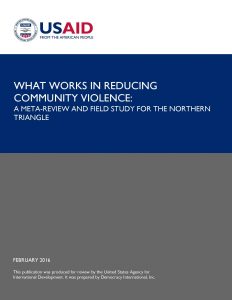
This report was commissioned by the U.S. Agency for International Development (USAID) for the Central America Regional Security Initiative (CARSI), a United States government effort
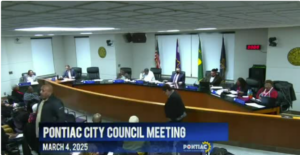
City staff and community partners begin training to address violence and juvenile involvement.

To tackle gun violence in Pine Bluff and Jefferson County, members of Group Violence Intervention are learning about call-ins with would-be offenders as a way
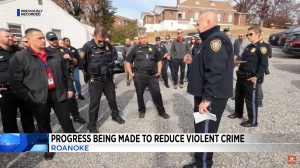
The city of Roanoke is making strides in its efforts to reduce violence, with significant progress reported in recent months. The city’s Group Violence Intervention
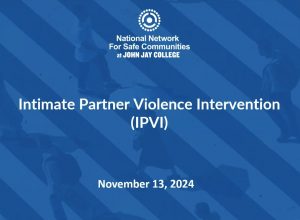
Through the Statewide Targeted Reductions in Intimate Partner Violence initiative (STRIVE), $35 million dollars will be invested to enhance safety and responses to victims. This
Office: 500 W. 56th St., Suite #031W • New York, NY 10019
Mailing: 524 W. 59th St., Suite #031W • New York, NY 10019
Privacy Policy
